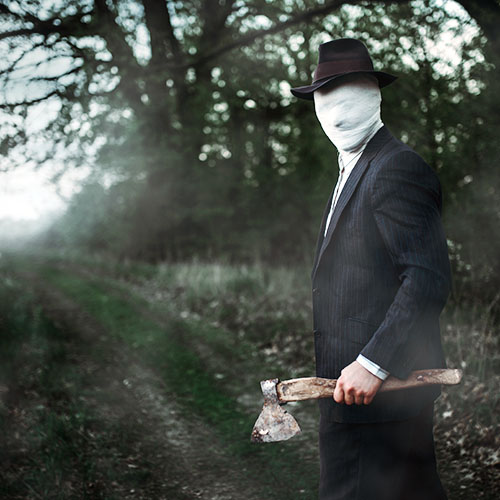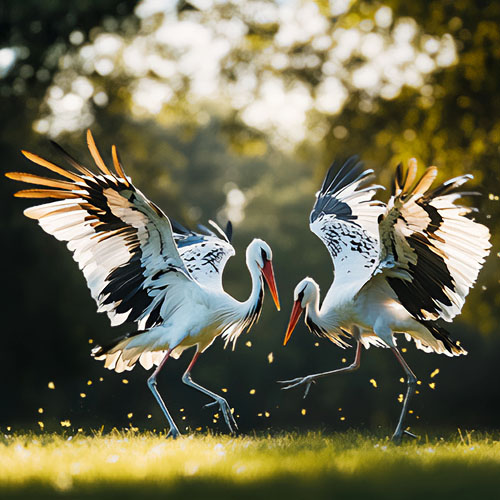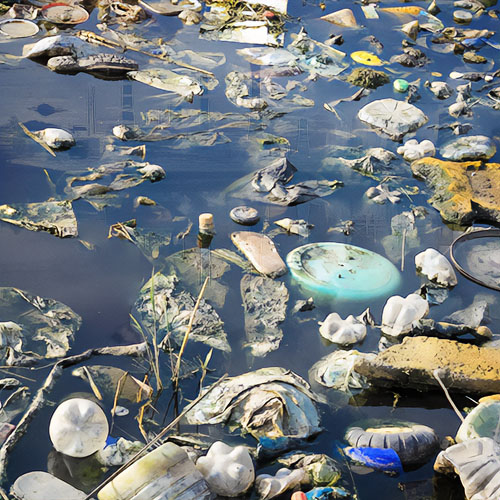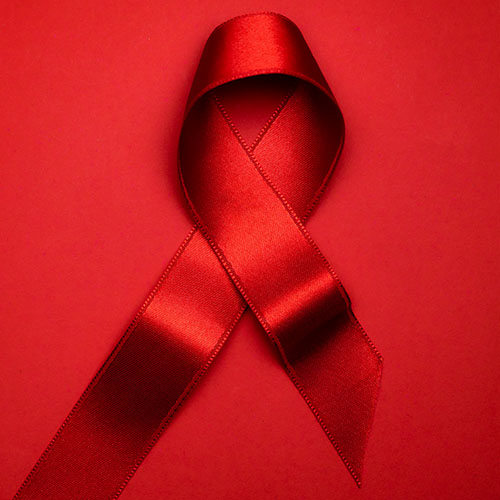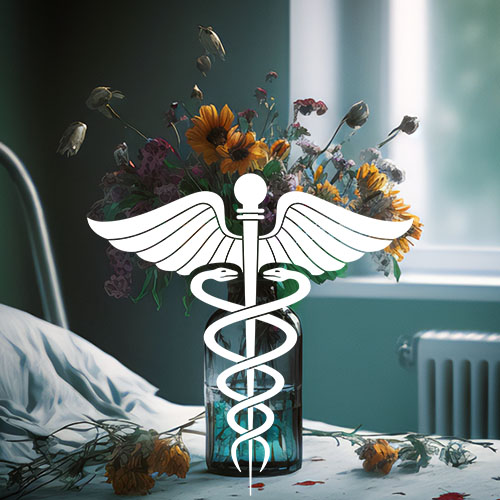Exploring the unimaginable future of life without food or water.
Survival at the End of the World
In the summer of 1973, I came across this advertisement in a magazine I happened to be reading:
Activist Futurists
Many “talk” futurism. Some seriously “think” about it. How would you like to “live” it?
Now you can actually experience some of the possible future scenarios that may occur. In February 1974, a new “Survival Training Course for the Future” will offer you an opportunity to experience two possible futures:
- Continuing and accelerating population explosion. If the world population more than doubles, could you survive? Come and find out. Experience emotionally that which others only talk or think about. This experiential learning will take place mostly in the carrefours section of Port-au-Prince, Haiti, currently the most densely populated place on earth.
- Massive, catastrophic economic collapse. In this scenario, no amount of material wealth can ensure personal survival. Chaos reigns. Could you survive? Come and find out. This learning experience will be mainly carried out on the barren and hostile west coast of Andros Island. Find your own food and water where none apparently exists.
Note: These experiences are not for the faint or weak-hearted.
For information, send your name and address by airmail to:
Frank Ogden
Survival Institute of the Future
39 Place L’Ouverture, Port-au-Prince, Haiti
Intrigued, I wrote to the Survival Institute at the address in Haiti, but when I received no reply I forgot all about the program. Then, nearly half a year later, I received a phone call from Frank Ogden, the founder-director of the Institute himself. He was teaching a course in futurism at the New England School of Art in Boston, and he explained that he was just about to leave with a group of students for the Bahamas on the second of the two “scenarios” mentioned in his advertisement. Would I be interested in joining them? To find out, I arranged to drive into Boston the following week to meet with Ogden and the group of students who were going on the survival trip.
“Don’t we get any training?” one of the students asked at the end of the meeting. “This could be dangerous.”
“Yes,” said Ogden, “it could. That’s what makes it interesting.”
He convinced me, so on February 14 — St. Valentine’s Day — we left Boston for the west coast of Andros Island, to experience what the advertisement described as a “survival training course for the future.”
Survival: The Last Day
I opened my eyes and saw the turkey vulture circling only twenty feet above me — an ugly black bird with a six-foot wing spread and a small crimson head that looked as if it had been dipped in blood. I was sick and stinking from eight days’ exposure on the west coast of Andros Island, one of the most barren strips of land in the world, where I had gone with nine others to participate in a survival experiment. For a week we had camped in this desolate spot, trying to live off the land.
All we could take with us, according to the rules of the game, were the clothes we wore to the island, which included the caftans we had made out of bedsheets for protection from the sun, small rolls of plastic to make a solar still and a minimal shelter, and some plastic pails. You shared a pail with another and could fill your half — a cylinder about a hand’s span in diameter and a hand’s span deep — with whatever you wanted.
I had filled my half-bucket with a space blanket, a fishing knife, a Washita stone (to sharpen the knife), some half-ounce sinkers, hooks, a fishing line, Halazone tablets, a Cricket lighter, a four-inch spade (for digging the solar still), two Amoply ammonia inhalants, a roll of half-inch adhesive tape, gauze pads, a tube of antiseptic cream, a small nylon hammock, notebooks, camera, film, and — for emergencies — a four-ounce plastic bottle of water (not enough to keep you alive for twenty-four hours in 120 degree heat), two Hershey tropical chocolate bars, (shared among the ten of us on the second day), and two Wilson freeze-dried bacon bars (which we combined with wormy water on the fourth day to make a very thin soup).
The contents of the buckets did not vary greatly, although we betrayed our obsessions with the extras stuffed between the space blankets and the knives. Jim Gangi, one of the six group members who were students at the New England School of Art (the rest of us had joined after hearing about the trip through magazine advertisements or gossip), carried a pharmacy: Alfrin nasal spray for colds, Fedahist tablets and capsules for scorpion stings, Cantil mepenzolate bromide for dysentery, chloroseptic lozenges for sore throats, Valisone cream and ointment for scorpion stings….
“You won’t need 98 percent of what you take,” we had been told by Frank Ogden, our leader and protector of the group, who had taught the course in futurism and whose Survival Institute of the Future, had cosponsored the expedition with the New England School of Art. “And the 2 percent you need you won’t take. But I can’t give you any hints. That’s not part of the game.”
Although he had brought groups from other colleges to the island twice before, he didn’t have a great many hints to offer. “I really don’t know what’s good to eat except the insect larvae, land crabs, and tree snails we ate last time,” he said. “We’ll just pick whatever we can find. If it makes us sick, we’ll look for something else.” An adventurous method of foraging, since there are rumored to be dozens of natural hallucinogens on Andros.
Ogden’s casual attitude about survival didn’t inspire confidence. Obviously, any serious poisoning or random hemorrhaging would be awkward, for we had stranded ourselves about ten miles — a half-day’s walk through mangrove swamp and across sharp coral — from the nearest settlement, Red Bay Village, which had no doctor and no quick way of contacting one. Medical aid meant a three-hour drive over dusty narrow roads to the east coast of the island.
“I really don’t know what’s good to eat except insect larvae, land crabs, and tree snails …. If it makes us sick, we’ll look for something else.”
But there was a certain flair in Ogden’s careless miscalculations. The beach he had intended for a campsite had vanished — washed away and replaced by the oozing marl that covered most of the west coast. “Wear sneakers,” he had told us, and by the last day my sneakers had been ripped to pieces and the soles of my feet were almost as shredded as the rubber that was supposed to protect them. We were learning about survival. Ogden, responsibly irresponsible, had obviously never intended it to be really easy. I was sprawled on the beach waiting for the others when I attracted the vulture.
“If he lands, we can grab him and make stew,” Jim Gangi said. He and I had taken a shortcut through a particularly soggy section of the swamp.
The others, a little behind, were still wading out into the shallow sea, sloshing up to their thighs, to avoid the deep channel of water that split the shore. Scott Gautier, with the relaxed solid features of a cigarette-ad cowboy, had been immobilized for most of the second day by the recurring malaria he contracted during his tour of duty in Vietnam four years before. David Gilley, thin, his half-closed eyes slightly menacing, had spent a silent week, smoking the cigarettes that filled his half-pail and fishing for porgies, grunts, and snappers. Bill Lambert (with a squarish face, a mustache, and a large rounded chin that gave him a slight resemblance to the young Hemingway) and Terri Batte (whose false teeth had amazed the kids from Red Bay Village) had spent the last day at our campsite together collecting thousands of tiny shells. Chris Parker, modestly voluptuous, grinning, and spontaneous — had oddly said that she signed up for the trip because she wanted “to learn how to be spontaneous.” Francine La Terza wandered through the week, growing vaguer and vaguer and constantly sewing up the rips in her caftan to keep herself together — sympathetic magic that failed, for by the end of the week her caftan, minus its hood and back, was the most ragged of all. Steve Figgins, blond hair to his shoulders and very uptight, was at seventeen the youngest member of our group (although all but three of us — Scott, twenty-six, Ogden, fifty-three, and me, twenty-eight — were under twenty-five). In addition to having planned this expedition, Frank Ogden was a former LSD therapist and the founder of Canada’s first futurist think tank, the International Synectics Foundation.
The vulture had sailed off the coral and was gliding away over the translucent blue-gray water. Following Gangi, I cut back into the mangrove swamp and plodded on toward Red Bay Village. This outpost, which consisted of eighty-eight Bahamians, had been settled originally in 1840 by runaway slaves and Seminole Indians and had remained almost completely cut off from contact with the outside world until 1968, when a logging company put in a road from the east coast of the island. A truck had dropped us off at Red Bay on our first day, and we were to meet it there again at the end of the experiment.
The villagers, puzzled by people who would willingly camp on the coast among the coral, mangroves, and landcrabs, had visited us a few times during the week to help us catch food and had invited us to the village. On the sixth day, when Bruce Marshall, one of the Red Bay elders, took us out in his fifty-year-old, fifteen-foot boat — which the villagers all called “The Vessel” — Chris told him, “This is better than suffering.”
“Were you suffering?” he asked.
“Yes,” said Chris.
“Why didn’t you come to the village?”
Marshall asked. “We have good water. We have fruit trees.”
“We wanted to suffer,” said Chris.
Survival: The First Day
“Lots of people died on the west side,” said Abraham, a fat Bahamian I had just met, who was squeezed into his seat across the aisle from me in the sixteen-passenger DeHavilland Twin Otter that was flying us from Nassau to the short dusty airstrip outside Andros Town. “Cubans — they came over in boats to the west side and couldn’t find food or water. Nothing there. See.”
Below us was the Great Bahama Bank (royal blue, almost purple out from the shore where the water was deeper, a light blue-green toward land) and the west coast of Andros, a gray strip of mud and coral.
“It looks like the moon,” said Scott.
For a hundred of the hundred and forty miles separating the west coast of Andros from Cuba, the water is no deeper than twenty feet. A mile off the east coast, between Andros and New Providence Island, the water drops to a depth of six thousand feet.
“The island is pitted with caves and blue holes that go down incredible distances and connect up with the sea,” said Dick Birch, the owner of one of Andros’ few inns, Small Hope Bay Lodge, where we spent our last night in civilization drinking rum and eating steak. “An oil company lost over a mile of cable down one hole. You have to be careful where you step.”
Andros, the largest island in the Bahamas with 1,600 square miles, has a population of only nine thousand confined to a narrow stretch along the east coast. The interior is one of the most extensive unexplored regions in the Western Hemisphere. The low forests — cottonwood, palmettos, and Androsian pine, a wood so resinous that in places the boards made from it are almost translucent — become sparser on the west coast, giving way to mangrove swamps, blue-green algae, and a calcium carbonate clay that is as slippery as buttered rubber. Andros has the kind of landscape that science-fiction writers populate with leftover dinosaurs and vagrant cavemen; and, before we left for the west coast on the morning of February 17, an eleven-year-old Bahamian, Cedric Spence, stopped me outside the Lodge dining room to warn me about the Yahoos, small hairy men-beasts, either borrowed from or borrowed by Jonathan Swift, who planted them in the country of the Houyhnhnms in Gulliver’s Travels.
“They leave circles of stones,” Cedric cautioned me.
“Why?” I asked.
“So you know they’re there,” he said. “And Chickcharnies. They have red eyes and three fingers and three toes. If you laugh at them, they’ll turn your head around. Why are you going?”
Chris, Bill, Jim, Scott, Fran, Terri, Steve — almost everyone in the group — explained that we were going to find something. They weren’t sure what: confidence, simplicity, themselves…. They all wanted to be changed by the experience.
We stood around the Lodge, feeling foolish in our white bedsheet caftans, clutching our last cans of RC Cola, and waiting for the red Fargo 400 pickup that was going to carry us to the end of the Red Bay logging road.
“After a week out there,” said Terri, “we’ll be riding each other bareback.”
“Bill got so drunk last night,” Chris said, “we can open his veins and use the alcohol in his blood to sterilize our cuts.”
As I picked up my plastic bucket, Cedric asked, “What happens if one of you dies?”
“I don’t know,” I said. “What do you think will happen?”
Cedric sat down against the side of the lodge.
“Bury him,” he said.
Survival: Into the Wilderness
Where the beach became impassable because of the sharp coral, we struck off into the high grass that fringed the shore, slipping along the slick clay that seemed to get soggier as we plunged deeper into the swamp. The ground, looking deceptively solid because of the tangle of mangroves and palmettos, sank beneath our feet. We sank up to our knees in places; and the mangrove roots, coiling like snakes in and out of the muck, tripped us. Crab holes, with their neat fecal-looking mounds pushed up at the entrances, pocked the land. The sky was layered like a parfait: purple above, then blue, then green, with a scar-colored strip lying across the horizon. The warm, moist wind from the southwest dropped; and a northerly breeze was rising. We were later told it was the worst cold snap in years.
We stopped at a patch of beach bordered on one side by coral and clay and on the other by stubby pines growing along a deep bight. Here we hoped to catch some porgies or grunts for dinner, but the chill discouraged the fish. At the back of the beach there was a grass hut, probably built by the Red Bay villagers as a fishing shelter. Ogden shook it to scatter scorpions.
“It’s going to be windy tonight,” he said. “We all ought to sleep huddled together in here.”
Chris, who had left a husband behind in Massachusetts, said, “No room.”
“In the morning when it gets cold,” said Ogden, “you’re going to want to press up against any warm body you can find.”
By the time we had gathered a pile of mangrove, pine, and driftwood, it was dark.
“What’s for dinner?” asked Terri.
“Fried rubber,” said Jim, who was hanging everybody’s soggy sneakers on sticks he had poked into the sand around the edge of the fire.
“What’s that?” asked Fran, listening to the roar of wind over water.
“The great beast of the Caribbean,” said Ogden.
“Good,” said Fran, “by all means let’s try to catch it and then cook it.”
Bill, curling up in his space blanket, asked, “Who’s number nine?” We had, while planning a fire watch, reduced ourselves to numbers.
“I’m nine,” said Steve.
“Okay, nine,” said Bill, “don’t forget to wake me. I’m ten.”
“Look at how dark it is out there,” Terri whispered, awed by the blackness of the sky.
“I don’t want to sleep,” said Fran very softly — the whispering was contagious — “I don’t want to miss anything.”
“All that water I drank this morning to stock up,” Jim whispered, “now every time I piss, I think, ’Shit! there goes another half-pint.’”
Bill sat up. “I’m cold and I’m hungry,” he said.
Fran, Jim, and Steve crawled under the space blanket with him, spreading another blanket over their knees. Ogden, Terri, Chris, and I huddled on the other side of the fire under two blankets. Gilley was snoring in the grass hut. Scott, the first-watch fire tender, had wandered off to gather more wood.
“This is the ultimate dream,” Bill said. “Ever since I was a kid I’ve wanted to do this.” He shivered, rattling the metallic space blanket. “I’m full of shit — this is the last thing I want to do!”
“The villagers called them ‘the red-assed white ladies.’”
Survival: Fasting and Fainting
We spent more than half of the next day hiking farther on down the coast, mostly through the marl along the water’s edge, stripped to our shorts to wade out around the deep bights that cut into the shore. The sun was so hot we first took off our caftans and shirts and then — as the midmorning blaze grew hotter still — put them back on. My dry lips had begun to crack. We’d had no food or water for over twenty-four hours. In the afternoon, we came to another sand beach and set up camp: a windbreak made of plastic sheets and space blankets, a fire pit, a smaller cooking pit, and a solar still (a hole with a bucket at the bottom to catch the water that evaporates from the sand and condenses on the plastic stretched over the top). Gilley found a red sea crab which he smashed up for bait; and he and Steve went fishing. Scott, suffering from the first symptoms of his malaria — chills, weakness, aching joints, dizziness — had taken the Atabrine he had brought and lay in the shelter, staring up through the milky plastic at the cloudless, beer-colored, late-afternoon sky.
“Did you catch anything?” he asked when Gilley and Steve wandered back into camp a few hours later.
“Only the bait,” said Steve.
I went to look for wood in an arid stretch, where the ground was cracked like a mosaic and the mangroves were so dry you could drag growing plants up by the roots and use them for kindling. When the dusty gray bark had been scraped off, the wood was blood-colored. Carrying six of these light plants was clumsy, like holding a fistful of four-foot spiders. When I returned to the beach, Jim, Ogden, Bill, and Chris were crowded around a tall young Red Bay villager, who wore extremely frayed houndstooth slacks and a white T-shirt and who seemed pre-occupied by the sun.
“Do you remember me, Mr. Frank,” he asked Ogden, “from the last time you come?”
“When I brought some students from the Ontario College of Art down here on a survival trip,” Ogden said, “all the girls got sunburned bottoms — they didn’t know enough to keep covered up, did they, Clarence — and, when the villagers saw them, they called them ‘the red-assed white ladies.’ Are you going to show us how to catch land crabs, Clarence?”
“Oh, yes,” Clarence laughed. “You all hungry?”
“Clarence can make water appear from nowhere,” said Ogden. “Watch.”
Clarence led us to the edge of the mangrove swamp behind the camp and stopped in front of a crab hole with a fresh pile of mud heaped before it.
“Taste it,” he said.
I dipped my hand into the cream-colored clayey water pooled in the crab hole, down through the bugs that were ricocheting across the surface like minuscule ball bearings, and lizard like licked up enough from my cupped palm to wet my mouth, which was so dry that my cheeks had begun sticking to my gums and teeth. The water was almost as salty as the sea; it smelled and tasted foul.
“Brackish?” asked Ogden. “But better than nothing, huh? Don’t drink any more until we boil it.”
Using Ogden’s machete, Clarence cut off a mangrove root and trimmed it into a long hook; then he slashed at the clay with the machete, enlarging the hole until it was about a foot in diameter. He knelt and, shoving his arm into the hole up to his shoulder, he felt around — his eyes closed in concentration, his lips pursed — for the crab.
“He’s home,” he said.
I chopped at a hole and jammed my arm down, feeling the warm mud slide between my fingers, blindly grabbing around in what seemed to be an endless passage. It reminded me of a story I’d heard long ago about how Michelangelo would stick his hand up through the anus of a cadaver to learn about the nature of the intestines.
“You have to be careful,” Clarence said. “He can take your finger off.”
I jerked my arm out.
“Use the hook,” he said; and then, suddenly twisting his shoulders, he pulled out a bluish hard-shelled crab about the size of a child’s palm.
Chris and Bill were checking crab holes, trying to find the sweetest water; and by the time they had filled one of the plastic buckets, Clarence had caught eleven more small crabs, a mouthful of dinner for each of us. “See how easy!” Clarence cried as he ripped off the claws. And it did look easy — but during the next week, despite many attempts, no one in our group succeeded in catching a land crab and only Bill even managed to touch one.
We boiled the water a cupful at a time in the small egg-poaching pot Ogden had brought; and after three and a half hours we had enough for three swallows each per day for the next two days, with a little left over for boiling half of the crabs. To save water, we tossed the other six into the fire to bake. When they hit the hot coals, the eyes moved on their stalks in wild circles and the shells heaved back from the bubbling flesh.
Four more Red Bay villagers, teenagers this time, had arrived in the camp; and one of them, Franklin Gould, said as he watched us press greedily around the first boiled crab, “Jesus had five loaves and two fishes and he fed five thousand people.”
“Give me that piece of white meat,” said Chris.
“It’s all good meat,” said Ogden, breaking off a brown and green part.
“Yeah,” said Chris, picking up a marble-sized bit from the middle, “but this is the familiar stuff.”
I scooped out some bluish mush with my fingers.
“What a complex body it has,” said Terri, poking at what looked like a purple finger-nail clipping lying on the last chunk of meat. “It’s a worm!”
Everyone stopped grabbing until Jim said, “It’s just protein!” Flicking the worm off with his knife, he speared the last piece.
“Here,” said Franklin, handing me something that was tough, purple, and cone-shaped with vulvalike flaps curled over a pink inner grove at the base. “It’s conch.”
“Is it cooked?” I asked.
“No,” said Wilton, another Red Bay teenager.
“It’s more important to get fed… Sex is a luxury.”
Because I was so hungry, my stomach ached. I figured that like any other shellfish it would be safe to eat raw, so I chewed off a piece. It felt like a bite of a truck tire.
After the five from Red Bay had left and dinner had ended, we sat around the fire, listening to the wind, the water, and the flames. Only the earth was silent. When you’re squatting in the dark on a spot that perhaps no one else has ever visited in the entire history of the world, it’s hard to avoid mythical thoughts and magical impulses; and, at three in the morning when, unable to sleep, I had crawled from the shelter to stoke the dying fire, Ogden called, “Who’s up? David? Look, reach into my bag hanging from the tree over there and take out the white powder. I’m going to make up some magic potion.”
Fran and Jim, also awake, crawled out of the shelter with Ogden. The other six groaned, tossed, and muttered as they stretched their cramped arms and legs into any space left empty.
“Anyone else want magic?” Ogden called into the shelter.
More groans and smacking of lips and murmurs, but no one else surfaced from sleep.
“Well,” said Ogden. “Magic doesn’t wait for anyone. You have to be ready when it happens.”
After boiling a cupful of water, he added some of the white powder, an ounce of some amber liquid, and a drop of something that turned the concoction green. He mixed it with a stick, and then he sipped.
“Ah, yes,” he said, handing me the pot. I sipped. Warm powdered milk and something else. I handed the pot to Jim, who sipped.
“Incredible,” he said and handed the pot to Fran.
“What is it?” she asked.
“If you don’t have faith,” said Ogden, “you can’t partake.”
“I believe,” said Fran, and she sipped. “It’s great. What is it?”
The secret ingredients were food coloring and seventy-five-year-old Napoleon brandy that one of Ogden’s millionaire friends back at the lodge had slipped to him as we left.
“I think the gods are telling me we ought to have another,” Ogden said as he stared at the second and last ounce of brandy remaining in the little vial.
“You’ve got to respect the gods, Frank,” said Jim.
At dawn, Ogden, Jim, Scott, and I crossed the three miles of mangrove swamp behind our camp to get to what the Red Bay villagers called the “tree yard,” a tract of tall pines, palmettos, and cottonwoods with an undergrowth of love-vines, clumps of stiff grasses, thumbnail-sized orchids, and thorny bushes which, according to Ogden, were poisonous to touch.
A palmetto looks like a large pineapple buried in the ground, with stalks as stiff as pencils growing out of the top and bursting at the ends into green starlike fronds. If you reach into the center of the plant, pushing aside the stalks, you will find a cream-colored stem that is shaped rather like a letter opener. This is a new stalk, and if you slip it slowly from its tight sheath and chop off a sweet tender half-inch from the bottom, you’ll have a palmetto heart to eat.
In the past forty-eight hours, we’d each had no more than three tablespoonsful of solid food and a cup of liquid; and after nibbling one of these palmetto hearts — which tasted a little like an artichoke heart — I felt, swelling up from my gut into my throat, a giddy, nearly hysterical hunger. Going without food for two days is bearable; but knowing that you may have to continue without it for five more days makes your appetite explode, as though your body — internally devouring itself by using food from its own cells — is borrowing against the future. But we were too weak even to panic.
We chopped down a dozen plants — hoping to use both the edible stem and the fronds for hats and baskets — and carried them back across the swamp to camp. We crossed an area where the blue-green algae had died and dried into black cinders that covered the coffee-colored mud, a landscape from some movie about the after-math of a nuclear war. As though fantasy were inspiring reality, from the direction of Red Bay village, we saw a cloud of smoke mushroom above the trees. We later found out that this came from the fire made to cook a wild boar Clarence had killed.
Within a half-day’s hard hike, the Red Bay villagers were feasting, while we dined on boiled palmetto hearts (the equivalent of a half-dozen stringbeans per person), a few gulps of warm chocolate milk (Chris and Terri sacrificed two of the dozen tiny Hershey bars they had brought), and raisins (which Jim, like Chaplin in The Gold Rush, counted out). We received three and a half raisins each.
“Frank said we’d find out what would happen to us if we were stranded on a desert island,” Scott said. “Now we know — we’d simply die.”
“All I can think about is pizza and beer,” said Jim the next morning.
He was lying in the sun, a palmetto hat covering his face.
“Roast beef,” Bill proposed, “with baked potatoes and butter.”
“A Bailey’s sundae,” Scott said. “All that dripping hot fudge and marshmallow.”
“A salad,” said Terri, “cucumbers, fresh tomatoes, cottage cheese, carrots, lime sherbert.”
“Cold water,” said Gilley.
“All you talk about is food,” Ogden said. “How come no one talks about sex?”
Ever since the first meeting of the group in Boston, the possibility of sex during the trip had been flirted with — perhaps our experiment would provide a lush tropical week of orgasms as sloppy as overripe mangoes, a fleshy parody of that standard cartoon in which the shipwrecked couple doesn’t want to be rescued from their island orgy. But nothing had happened. No one knew how risky this adventure would be — a broken leg might mean only a painful trip back up the coast but a ruptured appendix would be as ambiguous a hazard as a bullet in the brain. Since sex (which creates life) and death (which ends it) are traditionally joined, everyone seemed to back away from the former in order to avoid the latter.
Curled up close with Chris on that first chilly night, the warmth of her flesh startled me by its chasteness — her body comfortably curved itself to mine without any hint of erotic response. And I had surprised myself by feeling no more than a very faint sexual itch — an erotic tickle so remote that to explore it would have been like slipping from a warm bed on a cold night to track down some half-heard sound at the other end of a large house. By the fourth day, I was so weak that I couldn’t have kept my attention focused long enough to get turned on. Even if, through some confusion among the appetites, I had become aroused, I would not have had the strength to copulate. I would have needed a block and tackle — and someone at the other end of the rope to lift and drop me in the proper rhythm.
We all lay scattered on the beach like corpses washed up by the sea. Occasionally, one of us would struggle to his feet and stumble down to the water’s edge to splash his face.
“It was the same when I took the kids from the Ontario School of Art down here,” said Ogden. “It’s more important to get fed and keep warm. Sex is a luxury.”
‘“After a week out there,” said Terri, “we’ll be riding each other bareback.”’
Red Bay Village and the Scorpion Hunt Thursday morning, we woke before dawn and, hysterical with hunger, trudged on up the coast in the semidark toward Red Bay Village. Jim, wracked by dysentery, had spent the night scrambling out into the swamp to squat in the mud. Scott, weak from weight loss (by the end of the trip he had lost sixteen pounds, about twice what the rest of us lost), had spent a bad night breathing as though he had a wet towel over his mouth and nose. Steve punctuated his dreams with short monologues, bursts of random words that would trail off into moans. As for me, I’d found myself abruptly awake — my throat, my chest, and my belly burning with a swelling engorged heat. I’d kept trying to swallow phlegm which didn’t exist.
Red Bay looks like the slave quarters of a Georgia or Alabama plantation in about 1840 — which, after all, was the historical root of the community. There are shanties with pigsties in the back. Fat old women with heads wrapped in red bandannas sit in their doorways she I ling peas, and chickens scratch around the pump in the center of the village. Scampering barefoot kids wear hand-me-down clothes sent’ to them by church groups in Ohio, Florida, and Kansas.
For over a hundred years, because of the limited contact with the outside world, this culture has been static. Even the important sponge trade that had been active before 1938 (when an infectious sponge disease spread from the Bahamas throughout the Caribbean) did not affect the village. The selling was mostly done on other islands.
But in the past six years, since the logging road was put in, the village has been changing. Teenagers, who still clean fish by biting out the stomach and raking their fingernails down the scales, watch “Columbo” and “Star Trek” on Red Bay’s one TV, which is run by an electric generator, and listen on their portable radio to Nassau stations Zed and Ess 1, 2, and 3.
“Marvin Gaye, Stevie Wonder, Ray Charles, and … hey! … Jimmy Cliff,” said Franklin. “Nassau rock, Nassau roll, Nassau got a whole lot of soul ….”
Bill and Steve were kneeling at the pump in front of Red Bay’s schoolhouse, sucking water up from their cupped hands. Fran, Chris, and Jim had vanished into the out-house, which had three cubicles, each with a modern Bemis toilet seat covering the hole in the plywood and an illogical plunger standing by the door. Gilley was wandering among the fruit trees (pears, sweet and sour oranges, limes, mangoes, tamarinds, coconuts, Jamaican apples which taste like pumpkin pie, and bananas), eating whatever was ripe. Ogden was in the home of Red Bay’s hereditary leader, the Reverend Bertram Newton, arranging to get us a lunch of peas and rice. Scott and Terri were opening coconuts and sipping the sweet milk. Wilton, one of the older Red Bay teenagers, and I were wedged in the branches of a sapodilla tree, gathering the sweet-and-sour plumlike fruit.
“Do you have brothers and sisters?” Wilton asked.
“Three,” I said.
“I got ten brothers and eight sisters,” he told me. “I don’t know some of my brothers. It’s too crowded …. Hey, you married?”
“Yes,” I said.
“You have children?”
“No.”
“You live in a house?”
“Yes.”
“Just with your wife?”
“Yes.”
’That’s a good life,” he said.
The Red Bay teenagers — singing the McDonald’s hamburger song they’d heard on television for us and dressing up in their best urban duds — were trying hard to be modern and American. They wanted the complexity we’d temporarily left; we wanted the simplicity they were trying to escape.
Later that evening, back at our camp, when Ogden packed mud around the four fish we’d caught and tossed them into the fire, Wilton — who with half a dozen other Red Bay kids had walked us down the coast — called, “Hey Mr. Frank, what you doing?”
“We put the fish in the mud and bake them,” Ogden said. “When they’re done, the mud cracks off and it peels the skin and bones away with it.”
“Oh, my God!” said Franklin.
“Hey, Mr. Frank,” said Wilton, “you want to know how we cook fish? We take the fish, clean them, take a frying pan, put some lard in the pan, wait for it to melt, then put the fish in the pan, and let it cook ….” Jim Gangi’s scorpion hunt started Thursday night when he poked his head into the shelter where Ogden was lying and said, “Hold it, Frank. There’s a scorpion on your back!”
Before he could knock it off, Gilley had flipped the scorpion into a metal cup and Fran had then shaken it into the plastic vial the Napoleon brandy had come in.
“I’m going to dip it in plastic or acrylic and make a necklace out of it,” Fran told us, when Gangi protested that he’d spotted it first. “Find your own!”
So, on Friday, when Bruce Marshall took us in the boat to Cross Cay, Gangi asked, “Are there scorpions on the island?”
Marshall nodded; and Gangi was about to dive off the boat and swim the hundred yards back to shore, when Ogden said, “What’s that in the water?”
“Stingray,” said Marshall.
“It must be at least four feet long,” Scott exclaimed.
By the time we had reached the beach at Cross Cay, we had also seen a three-and-a-half foot barracuda and over a dozen sand sharks.
“Where are the scorpions, Clarence?” Gangi asked.
Clarence, who was Marshall’s nephew, said, “In the bark of dead trees — but scorpions are evil creatures. I wouldn’t play with them.”
“Clarence, how do you hold a scorpion?” Gangi asked.
“Ho! With a long stick,” Clarence laughed, walking over to help Gangi, who was carefully peeling back the bark of a dead tree.
“Why’s he want scorpions?” Marshall asked me.
“To make a necklace,” I said.
“Oh, my God,” said Marshall. “He’s crazy!”
After awhile, Clarence walked back to us, holding a Coke bottle — a piece of jetsam he’d found — with a scorpion inside. He showed this to Marshall and me, and then handed it to Gangi, saying, “There, that saves you the trouble of dying.”
No Changes — The End of the Adventure
Gangi, who had come to the island carrying three different kinds of scorpion medicine, spent the last two days on the west coast searching for scorpions as though confronting what he’d feared would happen during the survival trip. But no change came for any of us. We were all — like spontaneous Chris, who had been hoping “to learn spontaneity” — caught in a self-conscious civilized knot. The survival trip itself couldn’t change us; it could only prepare us for whatever would trigger a change.
“It’s funny,” Gangi said on Saturday. “I was so hungry just three days ago. Now I really can’t remember what it was like, feel just about the same as I did before I left Boston.”
“We’ll go home,” Terri said, “and no one will be able to tell anything happened to us.”
“What did happen to us?” asked Fran. Terri shrugged.
“Nothing really,” she said.
“Hey!” Wilton called, stalking rapidly around the fire that the other Red Bay teenagers were building for the party they were planning to give us later that night, “You look like priests. You [he pointed at Chris] look like Mary Magdalene. And you [to Terri], Mary the Mother of God. And you [Ogden], Saint Peter….”
“Who am I?” asked Bill.
“Judas,” Wilton said. And he was right. Bill did look like the Judas in the large 3-0 postcard version of the Last Supper that hung in Reverend Newton’s home. In our white bedsheet caftans, our hair matted and spiky, with eyes bleary from the sun, we did indeed look like a crowd of prophets. “You all disciples,” Wilton said, pointing at the rest of us, “you, and you, and you, and you, and you …. Hey, boy, there’re no more disciples!”
“There’s a shortage of everything these days,” Ogden said.
“Hey, Mr. Frank,” Wilton sang, “you sin once, you lose your soul; you sin twice, you lose your job….”
The sea was as milky as a dead fish’s eye. Abraham, the quietest kid from Red Bay, came into camp carrying a foot-and-a-half barracuda, which he’d just caught in a bight a little way down the coast. Steve followed him, carrying six smaller fish. We wrapped them all in tinfoil Ogden had brought, cooked them, and squeezed sour oranges over the baked sweet meat. The machete and knives, which hung from a nearby bush like violent fruit, clicked against each other in the wind. The huge red sun, sinking below the horizon, lit the low clouds with a gorgeous crimson glow.
The Red Bay teenagers threw more mangrove wood on the fire and the flames roared twenty feet in the air, with sparks sailing wildly higher into the gathering darkness. Then they circled the blaze: Franklin, Johnny Gibson, and Danny Miller dancing; Freddy Barr, Donald Lewis, and Wilton drumming on up-ended plastic pails; Abraham clapping….
“Mama Lou, Mama Lou, when she fell in the well….” they sang.
And they went on dancing for song after song. “I’d rather be a free man in my grave, than living as a puppet or a slave,” they sang….
They danced on and on, while we sat, exhausted, already halfway home in our imaginations, vaguely threatened by and yet attracted to the uninhibited frenzy of the kids dancing around the roaring fire — as though our joining in the dance might throw back some bolt in our personalities, releasing us, opening us to that change we’d been waiting for all week.
“Get up, hey, get up!” Franklin cried. “You know you got to dance….”
Not to rain on anyone’s desire to hone survival skills, but all in all, spending the time at an all-inclusive Jamaican resort sounds way more fun. And before you start thinking that hardly qualifies as bare survival, don’t be judging anything until you go off site and you try that jerk chicken they make in Jamaica. You might need a hat just to keep the sweat out of your eyes with those Scotch Bonets. And you won’t need scorpion medicine. … Of course, you can always get really brave.















